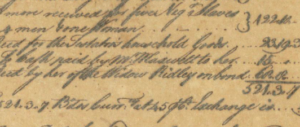My Spring graduate seminar on Atlantic Families is zooming through the semester– or at least, that’s what it feels like to me. We’ve read and discussed approaches to the field of “family history,” some inherent contradictions between feminism and history, and the challenge of archival creation and resonances. Now we’re well into a topical approach to considering how families shaped Atlantic worlds, and how Atlantic world dynamics shaped family structure, choices, and experiences. Students (in pairs) are doing a terrific job of leading, and framing, the seminar discussions.
Our last readings focused on families and the creation of merchant trade networks and polities. One of the most challenges books in any semester I’ve taught it is Francesca Trivellato’s The Familiarity of Strangers: The Sephardic Diaspora, Livorno, and Cross Cultural Trade in the Early Modern Period (Yale, 2009). I assign Trivellato’s book because it raises questions about how and when family connections, whether of choice or as compelled by law, drive economic action. In the early modern period, global trade was particularly reliant on cultivating connections that would facilitate credit, and family was a, if not the, primary connection of value. Trivellato asks whether “trust,” a concept associated with such familial networks, could be mobilized to scale as she looks at the enterprise of the Ergas and Silvera families (and their trade in such items as coral and diamonds). Mostly a Mediterranean story, this book stretches the “Atlantic Families” concept geographically. But it’s essential reading for the themes of family, trade, and state-building echoed in the same week’s readings, from Julia Adams on the Dutch state and Susanah Shaw Romney on Dutch settlement in early New York.
This week builds on these themes by looking to British law, particularly coverture, and the role of family strategies in response to law in the formation of capitalism. There is important work on early North American women regularly involved in complex finances (by Ellen Hardigan O’Connor and Sara Damiano among others), but this week we focus on England where the scholarship is somewhat denser and deeper. I’ve assigned Amy Erickson’s essay on “Coverture and Capitalism” approximately a gazillion times, but find it useful and thought-provoking. This week I also read some of Erickson’s follow-on work that wasn’t assigned for the course, including an essay on “the Short History of the Mrs.” Th constant here is that laws of marriage were created in the early modern period to serve– and then shape?–a specific economic and political form. Thinking about how essential aspects of “family” connect to emerging “economy” is the key.

Assets rec’d by Penelope Nesbitt, widow of James Nesbitt of Barbados, 1749, in the Lascelles Slavery Archive at the Univ. of York
In the course we then start to connect both– economic structures and family strategies in the imperial centers– more directly to slavery and the Atlantic slave trade. Because there is no history of early modern economy without a history of family. And there is no history of either without the history of slavery and the slave trade. A point I’m trying to make by bringing Simon Smith’s book on the Lascelles family is one that’s increasingly dense in both the scholarly literature and in public history in Britain: Caribbean slavery in particular was deeply entwined with the British economy, and especially so as it turned the corner into modern capitalism– and with family economic strategies. An on point example is the Lascelles Slavery Archive at the University of York, which draws on Smith’s work to contextualize the digital archive of materials related to the family’s interests in the Caribbean through the twentieth century. Among the transcribed examples on the site is the sale of four men and one woman in the course of another woman’s, Penelope Nesbitt, settlement of her husband’s estate. So much one could do with this singular piece of evidence, as the seminar knows from reading Marisa Fuentes on the archives of Barbadian slavery.
The themes of law and the constitution of race through the regulation of family (especially sexuality and marriage) accelerate in the last third of the course. Stay tuned!

No Comments